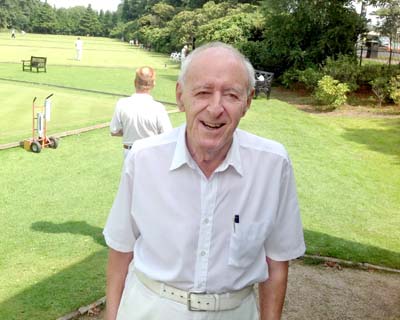
|
Back to |
| The Front Page |
| The Game |
|
What's age got to do with it? Stamina and will challenge young and old alike. |
|
by Bob Alman Posted February 25, 2016
|
Like most of the field in the 2016 World Championship of croquet in Florida, Peter Landrebe (World #21) and David Openshaw (World #44) have strategized a path to the finals and will play to win. Both have passed their mid-50's. Tony Hall, in his eighties with two new knees, will try to qualify. They'll all be competing against one of the biggest crops of wunderkinder ever to play in the event, including the remarkable Fletcher boys from Australia. Without revealing their inmost secrets, they provide insight and inspiration for a host of senior citizens and elders-to-be watching the spectacle from the comfort of our seats on the veranda of the National Croquet Center.
At the age of 76, I haven't played in a tournament since 2003. Like many elders, I enjoy at most a couple of games a day--maybe one before lunch and one after, my ideal "club day." I'm not nearly as energetic as I was just five years ago. And with my own lack of confidence, long past my personal best, I'm no longer satisfied to play with a partner anywhere near my playing rank, because the thought of letting the partner down let's ME down before I even put mallet to ball.
| WHAT THE STATS SAY ABOUT THE TOP FIFTY |
|
10 are in their twenties.
|
But some people--and Tony Hall is one--persist in competing in events that would test the stamina of players a decade or two younger. He relishes his finer moments and like all croquet players, can explain the crucial breakdowns. He intends to travel to Florida in April to play in the QUALIFIER for the world championship. His plan is to referee as a volunteer if he doesn't make the cut. As an octogenarian, he tells his story below.
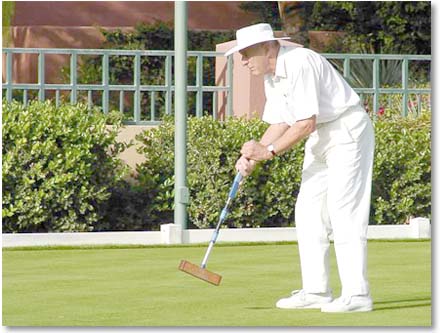
|
| In 2001, the globe-trotting Tony Hall competed at the Indian Ridge Croquet Club in Arizona. Photo by Arthur Bagby. |
Among the competitors in that World Championship, there is current World #44, David Openshaw, like several players we interviewed a longtime veteran of world teams and top competition. I interviewed him courtside in the 90's in Oakland when I was event-managing the USCA Association Croquet nationals. This time the interview was by email, amidst his sporting travels in Europe.
Exceptional players excel in their sixties
Having reached his sixties, Openshaw still enjoys being able to play at a high level and intends to keep doing it "as long as I feel competitive," but now exercises a kind of discipline that wasn't as essential in decades past.
At the 2016 World Championship, he says, "I will overnight as close as possible to the venue so that I can return between games and rest a little. I think its easy for me to manage the potential exhaustion as long as I'm motivated and have put in effort to prepare. In other words its more psychological than physiological. But I will take action to limit potential tiredness. Keep out of the sun, no late nights, during a match making sure there is somewhere relaxing to sit as the out player."
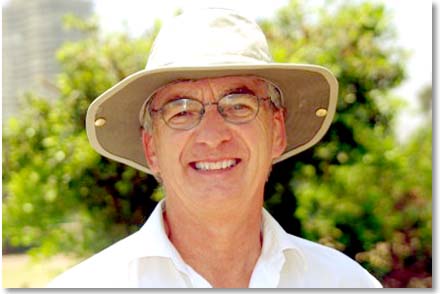
|
| David Openshaw, competing individually at top level for decades and selected for numerous world team events, will try to win the World Championship in Florida. |
So instead of strength and stamina, confidence and motivation are the main issues he sees facing older players. Moreover, "My motivation to play is not as strong as it used to be. That's why I play less. I'm putting a lot of effort now into improving my chess and my golf game."
Openshaw was 4th in the British Boys Under 16 nationals, but was too busy to continue competing past the age of 25, and the same thing happened in golf. "But now I want to see if I can improve substantially in both golf and chess."
Does he expect that to be any easier than croquet? "No. Golf is definitely more demanding physically. We don't use the cart, we walk round the entire course. And chess can be mentally exhausting.
"I've also transferred my admin time from croquet to chess and was Director of International Chess for the English Chess Federation for three years and manager of the English Chess team."
It's a familiar course for many older champions, who in their maturity may actually be at their peak ability to steer their way through organizational challenges that feel as difficult as sextupling on the lawn.
Openshaw's "minimum goal" at the Association World Championships of 2016 is to quality for the knockout ladder. But like almost everyone in the event, he'll be playing it to win, although he knows he's a statistical longshot: "At the 2012 World Championship an Australian journalist asked who were my favorites to win it. I told him the winner will come from three players: myself, Reg Bamford and Robert Fletcher. This year I would say the winner will be one of those three plus Paddy Chapman."
From the sidelines....
David McCoy, at the age of 77, maintains a schedule of play and high-level executive work that would test the stamina of most men half his age. He doesn't play much Association Croquet, though he is pleased with his results in the USCA's Selection Eights, in the third group. McCoy plays in numerous East-Coast club invitationals and most major competitions at the National Croquet Center, to which he has devoted many of his energies and skills in the last eight years as president of the Croquet Foundation of America and long-time General Manager of the Center.
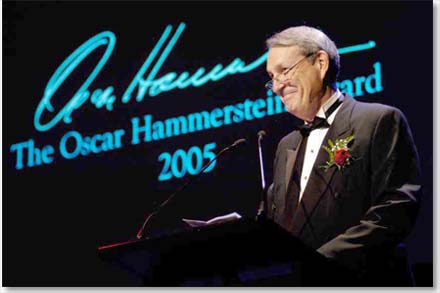
|
| David McCoy spreads himself thin among many organizations, but competes only in croquet. Here he hosts a gala for the New York Theatre Company, indebted to him for its survival, along with the National Croquet Center. |
I asked him, "How do you manage to compete in the tournament grind, at your age?" and he replied, "I don't really find it a problem--except for the time conflict with the seven organizations I support and five boards on which I sit (one as Chairman and one as President). Staying up late and giving up practice are the means I use to try to fit everything in. Itís not a good strategy to win or improve your game or your handicap, but it leads to a very full life and a lot of happy opponents!"
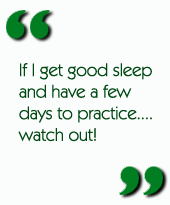 But surely, I said, you must have some strategies or tactics to preserve strength in what becomes a test of endurance as much as skill. "Not really. I just push myself through it -- often with the result of too many errors. That in turn results in sitting and watching a lot, which is not all that strenuous! If I get good sleep and have a few days to practice...watch out! But one or two in the morning is my usual bedtime and six hours of sleep a night isn't enough."
The Selection Eights are designed for continuous play over four days--surely the most strenuous format one could encounter. McCoy did it three years ago, "But 12 hours a day of croquet over four days made me sooooo tired at the end!" Nevertheless, he was pleased with his performance, having played so little Association Croquet before that.
But surely, I said, you must have some strategies or tactics to preserve strength in what becomes a test of endurance as much as skill. "Not really. I just push myself through it -- often with the result of too many errors. That in turn results in sitting and watching a lot, which is not all that strenuous! If I get good sleep and have a few days to practice...watch out! But one or two in the morning is my usual bedtime and six hours of sleep a night isn't enough."
The Selection Eights are designed for continuous play over four days--surely the most strenuous format one could encounter. McCoy did it three years ago, "But 12 hours a day of croquet over four days made me sooooo tired at the end!" Nevertheless, he was pleased with his performance, having played so little Association Croquet before that.
A long playing career could begin in youth
The famously outspoken and competitive Martin Murray, in his 70's, comments, "The longevity of croquet players is no surprise. Indeed, I feel lucky that I took up croquet at a relatively young age, and have therefore been able to have such a long career. Both my clubs have many members of my age or even older, but most took the game up too late to reach their full potential.
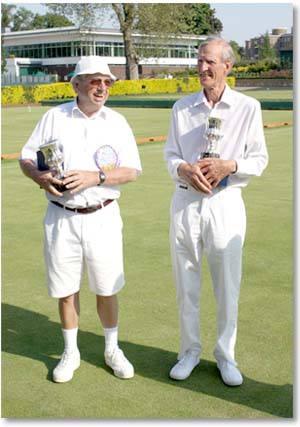
|
| Martin Murray (left, looking delighted) recalls: "The 50th anniversary of my very first tournament, at Roehampton, came up in 2012. I had recently re-established contact, after over forty years, with Brian Russ, a fellow student at Cambridge, with whom I had played doubles in that same tournament. We duly entered in 2012, although Brian hadn't played in a single tournament in all that time, and we managed to win it. While in croquet terms winning a handicap doubles is not very significant, the emotional boost I got from winning that minor event comes quite high on the ranks of my enjoyable croquet experiences." |
"I do question your suggestion that 70 is the 'barrier' to competitive success. These days it must be somewhat lower, since the standard has risen so much. Edgar Jackson, a very dear friend of mine, won the British Men's Championship in 1977 and 1979 at the ages of 72 and 74, but I can't think of a current player of that age who would have much chance of winning the Men's now.
"But comparing standards of play across the years is difficult. I consider I was playing as well at the age of 66 in 2008, as I was at my peak in 1982, aged 40. But in 2008 I settled for winning the Treasure's Tankard (the fourth eight), though in 1982 I rose to Number 2 in the Great Britain Test team.
"One difference between players is that of expectation. I have always been rather erratic, capable of brilliant and dreadful play even on the same day. This means that I may have become more used to disappointment than others (I'm thinking here of Nigel Aspinall and David Openshaw), who got used to a consistent level of excellence, so perhaps find failure harder to bear.
"My fluctuation in form means that I get a lot of pleasure from lighter-hearted events, particularly golf croquet and one-ball croquet. Both the clubs I am a member at (Bristol and Cheltenham) have both level and handicap club events, and I am still extremely competitive at both. A further advantage is that the golf croquet games are shorter than Association Croquet, so stamina--certainly a relevant issue--plays a lesser role.
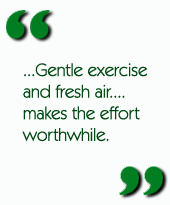 "However, I hardly play any Golf Croquet outside my two clubs, because most GC tournaments involve an extremely tough physical programme of many games every day, with no 'sitting out' while the opponent plays. In May I'm playing for Scotland in Tier 2 of the Golf Croquet World Championship, and am slightly concerned about the physical impact of the programme.
"However, I hardly play any Golf Croquet outside my two clubs, because most GC tournaments involve an extremely tough physical programme of many games every day, with no 'sitting out' while the opponent plays. In May I'm playing for Scotland in Tier 2 of the Golf Croquet World Championship, and am slightly concerned about the physical impact of the programme.
"Even if I'm now well beyond the stage when I can be competitive at the highest level, there is still a lot of pleasure to be gained from croquet. The fact that I can play with the world's best players, and have some success at a slightly lower level, is immensely rewarding. The knowledge that the gentle exercise and fresh air involved is good for me makes the effort worthwhile."
"Is this the start of the downhill part of my career?"
That's the thought Pete Landrebe is confronting at this point in a very successful croquet career, as World #21. He's the youngest player interviewed for this article. From examining the stats, he notes, "We're able to say that in general once a player reaches 60, they need to be an exception to the rule to succeed. And there are good examples of that in the last decade--Stephen Mulliner and Ken Bald come to mind.
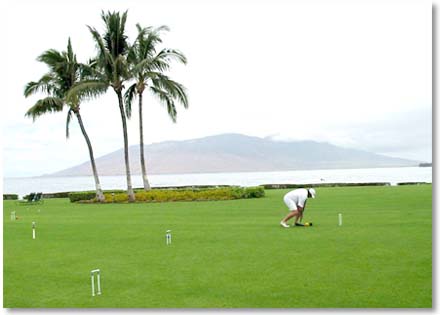
|
| Australian Peter Landrebe, managing a few physical issues in his sixties, maintains a schedule of top competition along with his 21st place world ranking. Here he is "dropping in" on the Maui Croquet Club. Photo by Leo Nikora. |
"In the stats there appears to be an even spread up to 50s, but after a player reaches 50 then what do they need to do different to be relevant any more?"
Landrebe answers his own question from personal experience: "Longevity in a major open or world singles event requires a player to concentrate and keep up energy levels for up to nine days, so the balance of fitness to achieve this changes over time; players around the age of 50, in addition to practicing tournament play, might need to begin to address what is required to succeed longterm.
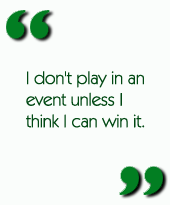 "On a personal front, I have always been disciplined in eating and sleeping correctly leading up to and during an event. What changed a few years back was needing to do more walking and fitness work for months leading up to a World's; and that was all going reasonably well until just a few weeks ago when a new challenge arose. From past sport, I have bad knees...generally just sore, and walking and moving helps; at no point have I ever felt they affected my performance.
"On a personal front, I have always been disciplined in eating and sleeping correctly leading up to and during an event. What changed a few years back was needing to do more walking and fitness work for months leading up to a World's; and that was all going reasonably well until just a few weeks ago when a new challenge arose. From past sport, I have bad knees...generally just sore, and walking and moving helps; at no point have I ever felt they affected my performance.
"But I am not a great roqueter for a player of my ranking, so I rely on being a pretty good croquet shot player with a good mix of variety in tactics (that's my rough self assessment). So last weekend my knees were quite bad and a few croquets shots were not coming out as I expected. I determined that I was not bending as much as I needed to and I was compromising my body movement. No big deal, except for my head panicked because I started thinking , 'Oh here is another issue to deal with--to find a way to stretch before play; and now I'll have to put time and energy in that rather than just lawn practice.' I suspect all fifty-plus players deal with issues like that."
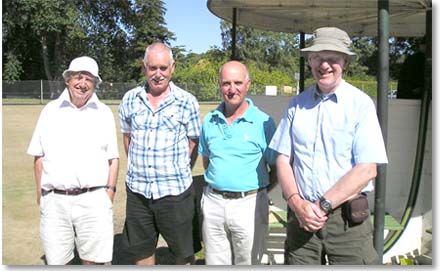
|
| At the New Zealand Centennial Championship in 2013, Martin Murray, Roger Murfitt, John Prince, and Andrew Hope relive the last day of the British Open of 1974, when Prince and the late Gordon Rowling had defeated Murray and Hope in a high-quality best-of-three in the British Open final. Rowling had been 64 at time, Prince's partner in the 1974 MacRob played in Britain. |
| WHEN SELF-DOUBT BECOMES PROPHECY |
|
John Prince, current World #81, had been a champion for four decades when he played in his last MacRob in 2003 at the National Croquet Center and became the first MacRob player to reach the 100th-match mark, against World Number One Robert Fulford: "But I made no contest of it. Early in the first game I was faced with a position very similar to the one against Solomon 40 years earlier, when I had astonished the gallery by hitting my opponent on the first rotation. But now, I looked at Fulford's ball some 10 yards away on the boundary, and it looked the size of a marble. I knew I would never hit it!....I felt the entire 40 years past as a player pressing down on my shoulders like a ton of weight. I knew without doubt that history was never going to repeat itself here, this was never going to turn into a purple patch, just a big black hole!" Seldom has a critical failure of confidence in sport been described so tellingly. (From "My Life in Croquet," Part III, by John Prince.)
|
Landrebe will ask himself more hard questions as he advances further toward the frontier of old age: "I don't know how much I will enjoy croquet after I stop being relevant. Will I still enjoying entering lesser events to try and win? Will I be able to change my ethos of thinking?
"For me, that is one of the great aspects of Tony Hall. I admire greatly his ability to attend everything that he always has to attend to and to still look like he loves the challenge and the play. For Stephen Mulliner to be top 20 in both GC and AC, and to keep making World teams is outstanding. I believe Stephen is the best role model for 60-plus players and for us 50-plus players entering a new stage: his energy, desire and fitness level sets him apart."
|
TONY HALL IN HIS OWN WORDS-- STILL COMPETING HARD IN HIS EIGHTIES I hit my first serious croquet ball on Saturday, 3 September 1989, watched closely by Kevin Brereton, Peter Tavender and Blaise Northey. By the next Tuesday Kevin had made me my first mallet. I won my first competitive match the following Saturday morning and my handicap was reduced from the then maximum of 16 to 7, which allowed me to enter the Australian Open Singles in February, 1990. Since then I have played in all but one of the 26 annual championships, missing 2012 just after getting a set of new knees.
But by the time I reached the last round of the Swiss Burridge qualifier I discovered to my delight and surprise that if I won the match I would qualify. Under that pressure and using all my experience (which is about all that is left) I managed to scrape in and won, to be the 13th qualifier. When the players gathered in the clubhouse at Cairnlea for the draw it was obvious that Robert Fletcher, the World Champion, would be the top seed. His name was placed in the top position by the manager, Brian Reither. The second seed was Stephen Forster and his name went to the bottom. Players drew names and numbers and gradually the board was filled, but the place next to the top remained vacant. I was asked to draw several times but my name remained hidden. Eventually there was only one position to be filled and one name, mine, left. So I drew the honour of playing the World Champion in the best-of-three knockout! I should explain that my position was not envied by other players. But I was delighted to have the opportunity. Only once before had I played a World Champion, when Reg Bamford beat me in a quarter-final of the British Men's Open 26sxp-0, 26sxp-0. I wanted to do better against Robert.
Alas, my senior's moment arrived and I stuck in the hoop. He made nine, I missed the lift shot and he finished that first game 26tp-0, as expected. Well, I thought, I can't do worse than that! So I decided to be aggressive in the second game and put out a super-shot. He went to the East boundary, I missed, he hit and made nine but left one of my balls in hoop 2 (surely an error?), the other leaning on hoop 4 and with his balls on the East boundary with a rush between hoop 1 and hoop 2. I lifted the red ball from hoop 4 and, again aggressive, duly missed from A baulk. He put my ball to hoop 3, but slightly over-hit his ball and only managed a rush into corner 1. Instead of approaching hoop 1 from the corner he rolled both his balls up towards corner 2, intending to rush my ball in hoop 2 back to hoop 1. He under-hit and laid up with only one of his balls unwired from my ball near hoop 3. I chose to shoot at it and, surprisingly, hit the 20-yarder. Now, full of adrenaline, I proceeded on a four-ball break. Realising that he was likely to hit a normal lift shot, I decided I may as well go to the peg and did so, giving him contact. I tried to make a leave with the four balls on the East and West boundaries nearest to hoops 1, 2, 3 and 4. I managed the first two, near hoops 3 and 4 and had a rush on one of his balls on the East of the court towards the West boundary. I was nearly there! Alas, another senior's moment arrived and I completely missed the 4-foot rush and hit the peg instead. I dimly heard noises of wonder and commiseration from around the other courts from the distant audience. Removing my ball from the court, I was now faced with his two balls against my one. Robert duly took contact, using his backward ball which had been on the East boundary, made twelve hoops and pegged out. I had to make 12 hoops while he had only three to go. I took position in front of hoop 1 and he in front of 4-back. I scored hoop 1 and took position in front of hoop 2. So far so good. He scored 4-back, turned and hit the 16-yarder at my ball, which was rushed to the West boundary. To my surprise, he was unable to get in front of penultimate while putting my ball near the middle of the South boundary. He took position and, again to my surprise, wired his ball. After the referee agreed with my plea for the wiring lift I hit his ball from B baulk, approached hoop 2 badly and bounced off. He hit my ball to the West boundary but again failed to get position at penultimate while putting my ball well down the court. This time he left his ball well back from his hoop but I managed to hit it and again approached hoop 2 badly. After several iterations he shot at a my ball, lying just West of hoop 2, from near the end of B baulk, missing to the West boundary. He had expected that my backswing would be hampered, but I was just able to hit the hampered 7-yarder with the referee watching closely. This gave me a real chance of making a two-ball break. My heart rose but was quickly smashed as I failed a simple hoop 2. Shortly thereafter he finished, winning the last game 26-14. I was elated at keeping the world champion working for so long! I left for the drive back home to Canberra an hour later than I expected, but with a memory I cherish.
That eliminated the world champion, but his younger brother, Malcolm Fletcher, was still there and was to be Greg's next opponent. Malcolm first played in a world championship in Florida when he was 14 and showed considerable composure. He has not progressed as well as expected, but can really turn it on when necessary. This time it was a semi-final and thus best-of-five. I wish I could have seen it. Greg won 26tp-0, 1-26tp, 26tp-9, 10-26tp, 26tp-10. The final must have been an anti-climax as Greg beat Dwayne McCormick 26tp-13, 23-26, 26tp-8, 26tp-22.
Now I am about to travel again--while I can--to the Worlds in Florida in April, and the Golf Croquet Teams in England in May. In 2014 I was inhibited from travel when I was unable to obtain insurance at a reasonable price because I was over 81. Now a firm called "WorldCare" has decided there may be a profit from octogenarians. Good for them! I also discovered a re-positioning cruise ship, the "Brilliance of the Seas", departing Tampa for Barcelona on the Tuesday after the Worlds finishes and arriving in Europe in good time to either go to Bath to watch Australia win Tier 2 and regain its place in Tier 1 of the Golf Croquet World Teams, or watch the top eight teams battle at Surbiton in Tier 1. Patriotism will find me at Bath for a majority of the competition. I will enter the Qualifier in Florida, and will try hard, but logic informs me that I will be available for refereeing in the main event. So it goes. I have enjoyed being able to compete with the best in the world, for a long time. What a pity I was not introduced to croquet before the age of 57. We owe it to younger people to provide them that opportunity. Tony Hall spent forty years in the Australian army, retiring as a widower Colonel with three children and seven grandchildren. I first met him when he arrived in San Francisco to compete in the San Francisco Open and to referee the Sonoma-Cutrer World Championships. I interviewed him sitting beside a deserted court as he told me what he wanted to achieve as the newly appointed President of the World Croquet Federation. He had arrived late on the croquet scene, first playing as a 59-year-old and quickly attaining a low handicap due to his previous sporting prowess in most sports, but particularly in field hockey, squash, golf and basketball. He had become a specialist in sports administration, helping to start local clubs for hockey and squash and graduating to senior positions in swimming, veterans' hockey and squash. On retirement he was introduced to croquet in 1989 and was his club's treasurer and secretary, then the New South Wales State President, and finally a member of the Australian Croquet Association Executive as the Junior Vice-President before becoming the Senior Vice-President. Each of these positions was occupied for two or three years, so he had about ten years' experience in croquet administration when he was tapped to be the President of the WCF, following a stint as Treasurer of the organization and chairman of the WCF Golf Croquet Working Party when the Golf Croquet Rules were first converted from Arabic to English and standardized. His ambition was to make the WCF the genuinely global body administering the sport with uniform standards for rules and regulations, so players traveling anywhere in the world would know what to expect. After five years with the WCF, Tony served nine years as Treasurer of the Australian Croquet Association. When he turned 80, he decided it was time to relinquish all administrative positions. As a player his best year was 2005, when he won the championships of both New South Wales and Queensland, having played in almost all the World Championships from 1995 to 2012 in both Golf and Association Croquet. |
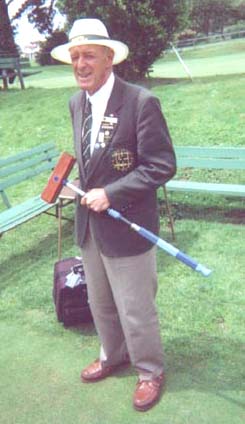
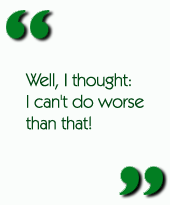 The next morning Robert won the toss and put his first ball a yard West and three yards North of hoop 5, a super-shot opening. I went to just South of corner 2. To my surprise he missed my ball, leaving me a juicy double. Again to my surprise, I hit the double, rushed a ball South of his first ball, loaded hoop 2 accurately, rushed his ball to a couple of feet in front of hoop 1 and approached that hoop to just a few inches, dead in front. I had won the opening!
The next morning Robert won the toss and put his first ball a yard West and three yards North of hoop 5, a super-shot opening. I went to just South of corner 2. To my surprise he missed my ball, leaving me a juicy double. Again to my surprise, I hit the double, rushed a ball South of his first ball, loaded hoop 2 accurately, rushed his ball to a couple of feet in front of hoop 1 and approached that hoop to just a few inches, dead in front. I had won the opening!
 Although I was travelling I looked at my IPad every time I stopped for fuel or food and was astonished to see that Robert's older brother, Greg Fletcher, beat him 26otp-12, 26tp-20. Had I messed with Robert's confidence?
Although I was travelling I looked at my IPad every time I stopped for fuel or food and was astonished to see that Robert's older brother, Greg Fletcher, beat him 26otp-12, 26tp-20. Had I messed with Robert's confidence?
